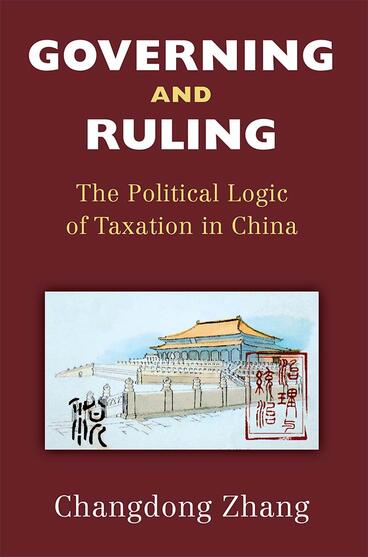Governing and Ruling
The Political Logic of Taxation in China
Studies how the Chinese Communist Party uses and reforms its taxation institution to promote economic growth and governance quality while limits the emerging capitalists' political demand
Description
Rapid social economic changes, the transition from a planned economy to a market economy, or even economic liberalization can lead to political instability and the collapse of authoritarian regimes. Despite experiencing all of these unprecedented changes in the past forty years, China under the Chinese Communist Party’s leadership has so far successfully transformed and improved both its governance capacity and its ruling capacity. Governing and Ruling addresses this regime resilience puzzle by examining the political logic of its taxation system, especially the ways in which taxation helps China handle three governance problems: maneuvering social control, improving agent discipline, and eliciting cooperation. Changdong Zhang argues that a taxation system plays an important role in sustaining authoritarian rule, in China and elsewhere, by combining co-optation and repression functions. The book collects valuable firsthand and secondhand data; studies China’s taxation system, intergovernmental fiscal relationships, composition of fiscal revenue sources, and tax administration; and discusses how each dimension influences the three governance problems.
Changdong Zhang is Associate Professor of Political Science, Peking University.
Reviews
“This groundbreaking study provides a stimulating account of regime resilience in contemporary China by focusing on the relationship between state institutions and revenue collection. Changdong Zhang convincingly demonstrates how institutional arrangements combine to enable the Chinese Party-state to balance between revenue extraction and economic growth and social stability. This well-researched and analytically provocative work is a major contribution to the literature on authoritarian politics.”
- Yongshun Cai
—Yongshun Cai, Hong Kong University of Science and Technology
“Governing and Ruling provides a much-needed analysis of taxation and regime maintenance in contemporary China. Drawing extensively on the literature in political science and economic sociology on taxation, this book offers a fresh analysis of how taxation shapes the CCP’s strategy of rule that makes important contributions both to Chinese political studies and to the comparative literature on the political economy of regime survival.”
- Thomas Pepinsky
—Thomas Pepinsky, Cornell University
“Does taxation lead to representation? Not necessarily, argues Changdong Zhang. Zhang identifies various mechanisms through which taxation affects the stability of the Chinese state, the most interesting of which is the suggestion that raising taxes to a level so high that taxpayers must evade them can produce fear and quiescence rather than criticism of the party. This book should launch a new research tradition on understanding the relations between fiscal sociology and authoritarian politics.”
- Monica Prasad
—Monica Prasad, Northwestern University
“We know far too little about how taxation actually works in authoritarian regimes in general, and in China in particular. Drawing on an impressive range of theoretical literature and multiple types of evidence, Changdong Zhang argues that taxation poses a host of political and economic dilemmas to China’s long-ruling CCP. His emphasis on revenue instruments that social scientists all too often ignore, such as indirect taxes and state-owned enterprises, produces sophisticated new insights into how taxation shapes authoritarian governance.”
- Dan Slater
—Dan Slater, University of Michigan
“Drawing on solid empirical evidence from varied localities of China, Zhang offers an elaborate institutional explanation for authoritarian resilience through revealing the covert mechanisms of taxation politics in China. He also contributes to the wider field of fiscal sociology by delineating an inspiring theoretical framework illuminating how taxation systems impact social and political transition under an authoritarian regime.”
- China Quarterly
—The China Quarterly
"Governing and Ruling is a compelling and inspiring work. Zhang offers a novel perspective to comprehend the politics of taxation and authoritarianism. It has
- Guangming Jiang
rich implications for scholars and policy-makers and deserves a wide readership."
—Asian Review of Political Economy
"Overall, Governing and Ruling makes a unique contribution to the literature on democratization by providing a deep understanding about the fiscal side of regime durability. It also empirically highlights the tension between despotic and infrastructural powers in China, besides serving as a primer for students of Chinese politics on taxation. I highly recommend it to anyone interested in fiscal capacity, state-business relations, democratization, and Chinese political economy."
- Erik H. Wang
—Democratization

